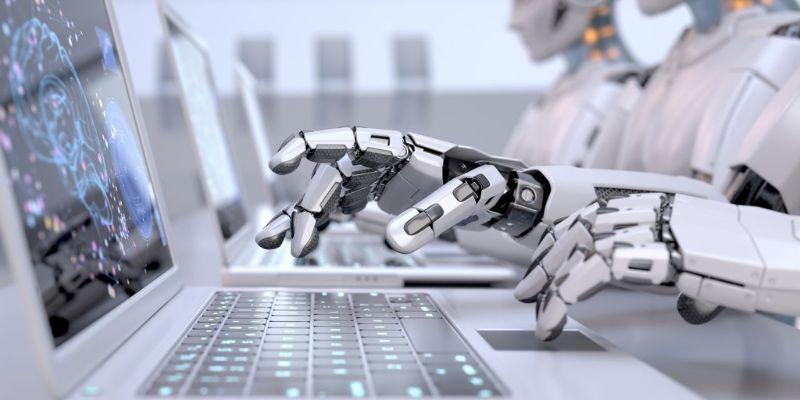How is AI impacting emerging economies? The answer lies in a tech tidal wave that’s rewriting the rules of growth and innovation. Emerging economies are at the dawn of an AI revolution, shaping everything from how food grows to how money moves. I’m diving into this transformative journey, revealing how AI isn’t just tuning up existing systems, but blazing entirely new trails. We’ll explore sustainable AI development and the critical policies that shape it, eyeing how nations can rise as leading tech players. Then, we’re digging into the AI makeover in vital sectors, from agriculture that feeds millions to financial systems that empower them. Yet, this isn’t a path clear of obstacles. We’ll tackle the tough parts – upgrading digital roads and guiding the ethical compass. Ready for a run through the AI-enhanced future? Let’s gear up for a world where education and global partnerships fuel the AI wave. This is a story about technology, hope, and the power of human ingenuity in emerging markets. Buckle up; we’re on the front lines of an AI revolution.
The Emergence of AI-Driven Economies
Fostering Sustainable AI Development
Think of AI as a new friend in town, shaking things up. In places like Africa, Asia, and Latin America, tech folks are finding ways for AI to help farmers. They’re making apps that tell them when to plant crops for a bigger harvest. It’s like having a smart helper on the farm.
AI is also like a teacher. It’s changing how folks learn in far-off places. More kids can get help with math and reading, even if there are not enough teachers around. Pretty cool, right?
Small businesses are getting a hand from AI too. They use it to figure out what folks like to buy. This means they can make more money and hire more people. Everyone wins!
Crafting Effective AI Policy Frameworks
Now, let’s talk about the rules of the game. Making good AI rules is big for these places. It’s like making sure that the game is fair for everyone.
The big bosses in countries are working hard to get these rules right. They want everyone to get a piece of the AI pie. They’re thinking about how to keep jobs while machines start doing more work.
It’s not just about making money. They want AI to be good for everyone. That means looking out for all people. It also means being fair and not hurting anyone with the new tech.
To sum it up, AI is a huge wave changing how people live and work. It is helping folks in far-off lands to make better lives. And, the big goal is to do it right without leaving anyone behind.

AI Transformations in Key Sectors
Revolutionizing Agriculture with AI
Let’s talk farming first. Imagine fields of crops chatting with drones. That’s what’s happening in places like Africa and Asia. Farmers are using AI to figure out what their plants need. It’s like having a helper that’s super smart about growing things. This AI looks at the soil and tells farmers how to make their crops better and get more food. In short, this tech is helping farmers grow more food, which feeds more people.
Now, let’s dig deeper. These AI systems take pictures of the fields from above. They see which plants are sick before the farmer can. This really matters because catching sick plants early can save a whole crop. Plus, AI helps farmers use water wisely. In hot places where water is scarce, this is a game-changer.
And don’t even get me started on the seeds. AI picks the best seeds to plant for each field. So, every single seed has a better chance to become a strong, healthy plant. We’re talking big changes here, friends. Crops are bringing in more money and feeding more folks. It’s a win-win, truly.
Integrating AI for Financial Inclusion and Accessibility
Okay, moving on to money matters. Imagine if everyone could bank from their phone, even in the smallest village. That dream is becoming real in many parts of Latin America, Africa, and Asia too. AI is making it easier to handle money when there aren’t any banks close by.
What is this AI doing, you ask? Well, it looks at how people spend and save. Then, it helps them in ways humans haven’t before. It’s about giving loans to folks who usually don’t get them. Or helping people save up even if they earn very little. In countries where many people don’t have bank accounts, this is big news.
With AI, a street vendor or a farmer can get a small loan with just a few taps on their phone. This means they can buy more things to sell or seeds to grow more crops. And more sales mean more money. It keeps going, helping more and more people to get ahead.
AI doesn’t just stop there. It teaches people about money. It helps them plan to have enough for the future. It’s like having a tiny bank and a money teacher in your pocket. And for folks in far-off villages, this can change everything.
Don’t forget the local tech startups in all this. They’re the brains making these apps and tools that are changing the game. They come up with bright ideas, then they use AI to make them real for everyone.
So, take it from me, this tech tidal wave of AI is doing some truly amazing things in these parts of the world. From fields of crops to the way we handle cash, AI is there, shaking things up, making life better. It’s like a bunch of secret helpers that don’t need sleep, making sure everyone gets a fair go. Now, isn’t that something to talk about?

Overcoming AI Implementation Challenges
Advancing Digital Infrastructure
The push for AI in places with little tech is tough. We need strong nets and power. Wires and signals must reach far and wide so AI can work well. For AI-driven growth, countries are boosting their digital setups. Fast internet is key for AI to learn and solve problems fast.
My work in Africa shows that with better web access, AI helps farmers a lot. Asia’s growing AI field uses this in cities and villages to aid lots of people. Latin America, too, invests in net upgrades, eyeing AI for jobs and profit. Digital roads pave the way for AI’s trip to change lives.
Addressing Ethical and Adaptation Concerns
AI is big but also tricky. We must think of right and wrong. People worry AI could take jobs or make choices without care. Ethics in AI means making sure it’s fair and does good. In many places, adapting to AI is slow. People need to learn new skills. They must get comfy with tech in daily life.
I’ve seen fear turn to hope when AI brings health care to far towns. Teaching about AI helps folks feel more at ease. It opens doors to new jobs in data and tech. These steps help more folks from more places get into AI.
Dealing with AI worries means listening and teaching. It means building trust in tech that can change lives. We aim for AI that helps, not harms. It’s a balance of growing fast but caring for each step we take.
The Pathway to AI-Enhanced Future
Fostering AI Education and Skill Development
Hey there! Let’s dive into how AI is shifting gears in places where tech is just blooming. You see, AI is not just a buzzword. It’s a tool that can light up the future of young minds in developing lands. Think about it: a kid in Africa could learn to teach machines to solve real local problems. With AI initiatives in education popping up, these kids are set for success.
In Asia and Africa, brains are hungry to learn. AI education initiatives help to feed this hunger. These programs focus on skills in data science and machine learning. They turn eager learners into whiz kids who can then join the local tech scene. This creates a smart workforce ready to handle the tech of tomorrow.
How does it work? Schools and tech hubs in these places partner up with big tech from far away. They create courses in AI and machine learning. They bring in teachers who know their stuff. Kids and adults get to learn hands-on. They build cool projects that can really change things in their communities.
It’s a win-win – people get skills and jobs, and the local economy gets a boost from all this fresh talent.

Building Cross-Border Partnerships and Investment Channels
Now, for the next cool part: joining hands across the ocean. Cross-border partnerships mean countries working together to make AI dreams a reality. And it’s not just about the partnership. It’s about investing in the future. In Latin America, for example, investment is flowing into tech startups. This money helps turn big ideas into even bigger realities.
What happens then? Startups in these emerging markets use those funds to grow. They hire more people and teach them the AI ropes. Then, they use AI to solve stuff we all care about, like farming for high yield or making healthcare reach far-off places.
So, when a farmer in Latin America uses AI to grow more crops, that’s the power of global teamwork and investment at play. It’s the same when a clinic in a remote village uses AI to keep folks healthy.
These cross-border ties aren’t just good for business, they make friends and allies. This builds a better, safer world for all of us. Sure, there are challenges, but with clear rules and good intentions, we make it work. It’s all about sharing knowledge and resources for everyone’s gain.
So, my friends, AI isn’t just changing the game in rich countries. It’s bringing its A-game to places that are full of talent and ambition. With the right education and partnerships, these emerging economies are becoming power players in the tech world. Keep an eye on them. They’ve got their AI game on and they’re ready to soar.
We’ve explored how AI shapes our world, from green growth to new rules that guide AI use. AI is changing farms and banks, making life easier for all. Still, we face hurdles like building strong internet networks and making sure AI use is fair. Looking ahead, learning about AI and working with other countries will help us make the most of this tech. Remember, AI is not just about machines; it’s about people joining hands to build a smarter future. Let’s keep learning and growing with AI. This is our chance to make a real difference.
Q&A :
How is AI influencing the growth of emerging economies?
AI is acting as a catalyst for growth in emerging economies by improving efficiency and productivity in various sectors. From healthcare and agriculture to finance and education, AI-driven innovations are enabling these countries to leapfrog traditional stages of development and integrate into the global economy more swiftly. Tailored AI solutions help in addressing the unique challenges faced by these regions, fostering entrepreneurship and creating new market opportunities.
What sectors in emerging economies are most affected by AI?
The most affected sectors of emerging economies by AI include agriculture, where predictive analytics improve crop yields; healthcare, with AI-powered diagnostics and telemedicine; financial services through the proliferation of fintech and mobile banking; and education, where personalized learning platforms are revolutionizing the way students learn. Manufacturing and transportation are also experiencing significant changes due to AI and robotics, leading to more efficient supply chains and production lines.
Can AI create job opportunities in emerging economies?
Yes, AI can create job opportunities in emerging economies by generating demand for new skill sets and roles, such as AI maintenance, data analysis, and cybersecurity. It also has the potential to enhance the productivity of existing jobs and create entirely new categories of employment in AI-driven industries. Although there is a concern about job displacement due to automation, with proper planning and investment in education and training, AI can lead to net job growth.
What challenges do emerging economies face in adopting AI?
Emerging economies face several challenges in adopting AI, including a lack of infrastructure, limited data accessibility, shortages of skilled talent, and regulatory and ethical considerations. There might also be resistance due to fears of job displacement. Ensuring equitable access to technology and investing in education and infrastructure are critical steps to overcoming these challenges and harnessing the full potential of AI.
How can emerging economies ensure they benefit from AI?
For emerging economies to benefit from AI, they need to focus on building a robust digital infrastructure, fostering education and skill development for AI technologies, promoting AI research and development, and creating policies that encourage innovation while protecting citizens’ rights. Also, they should prioritize collaborative efforts between governments, the private sector, and educational institutions to create an ecosystem that is conducive to AI advancement and integration into society.

